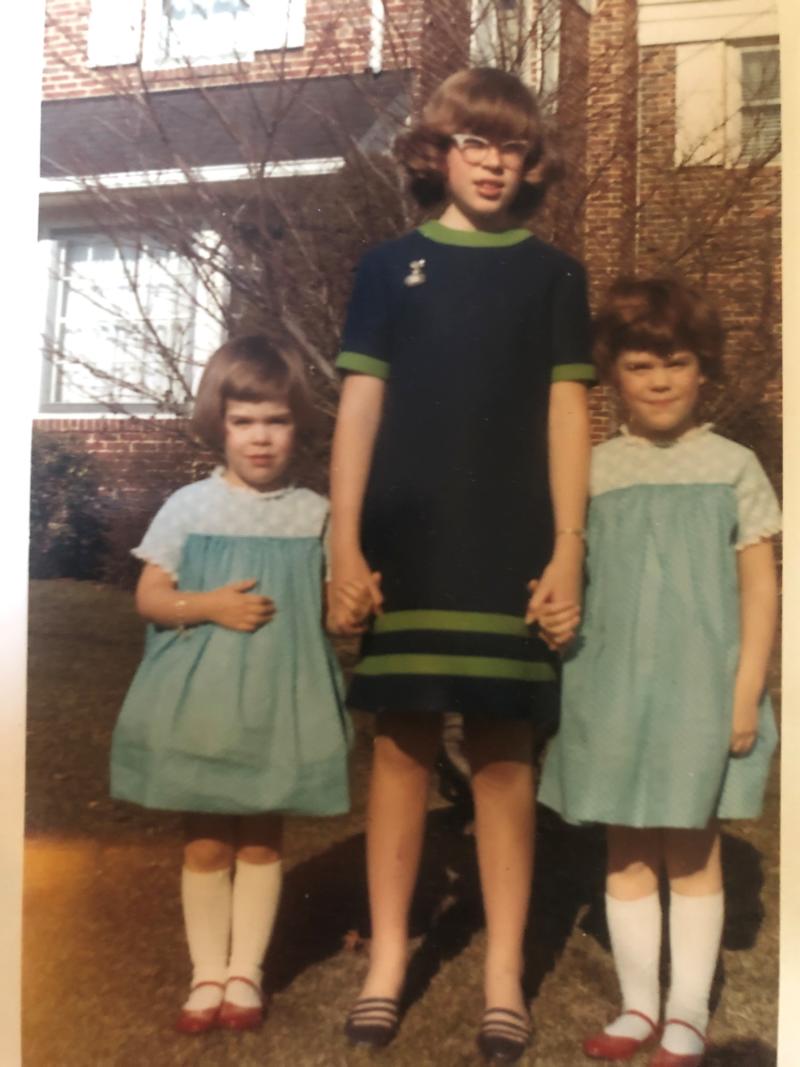
It’s said that blood is thicker than water. But it’s also said, you can pick your friends but not your family. Well…which is it?
In the case of families impacted by T1D, wherever the family is careful to extend one another love and grace, it’s safe to say blood truly is thicker than water. In the familial home where all of life is shared together, we learn to accept the good and the bad that we each individually undergo, weaving these experiences into the warp and weft of the fabric of our family. Siblings, in particular, learn that when their own threads have worn bare from stress or illness, their siblings are strong enough to support them.
When I was eight years old, my sister Barb—who was then sixteen—was diagnosed with  T1D. Almost overnight we were ushered into a new world we barely understood. For my mother one thing was certain—foods like candy and soda that were off-limits for my sister were off-limits for all of us. My mother paid great attention to our food choices, teaching all of us about good nutrition.
T1D. Almost overnight we were ushered into a new world we barely understood. For my mother one thing was certain—foods like candy and soda that were off-limits for my sister were off-limits for all of us. My mother paid great attention to our food choices, teaching all of us about good nutrition.
Halloween was the one exception to the no-candy rule. That first Halloween, and every Halloween thereafter, when my sister Betsy and I returned home with our sugary loot in our bright orange plastic jack-o’-lanterns with the black carry straps, our mother promptly placed all our candy in plastic bags in the basement freezer. We were allowed one piece an evening, as long as we could eat it without Barb seeing us. My preferred method of clandestine candy consumption was to sit on the family room sofa with my arm casually placed on the back of the sofa cushions, so my hand—which clutched the small piece of frozen candy—rested just underneath the heat of the lamp’s lightbulb. A few minutes in this position was sufficient to soften the frozen candy so it wouldn’t break my teeth!
I’m sure I harbored a few fleeting moments of annoyance or even self-pity at the new restrictions placed on our family, but those feelings were quickly overshadowed by my love for my sister and my desire for her overall well-being.
In those early days, pre-finger stick blood tests, when the only way to detect a high blood sugar was by a urine test, there was no fast-acting insulin to bring down a high blood sugar. In those days, we developed a new habit of taking walks together whenever my sister needed to bring down an elevated blood sugar. Perhaps a really good friend would consider doing that from time to time, or when convenient. But we didn’t have to consider it. It’s just what we did. It became part of our shared life together.
Years later, when my own son was diagnosed with T1D at age five, my sister, Barb, was the first person to arrive at my doorstep. She assured me I had this, and that I was stronger than I knew. Importantly, she saw the family guilt I carried, knowing T1D was somehow coded in our genes, and she urged me to lay down the guilt, as well as my anger over our new reality.
For years I was one of the siblings supporting my sister in her journey with T1D. Overnight, she became one of the siblings supporting me and my son in his journey with T1D. I may not have picked my siblings, but if given the choice, I would pick them over and over again.
Bonnie O’Neil is a mother and sister to three family members with T1D and is a longtime board member of JDRF – GDV. Her new book, Chronic Hope: Raising a Child with Chronic Illness with Grace, Courage and Love will release in April 2021 and is available now for pre-order on Amazon and Barnes & Noble. This is what Aaron Kowalski, PhD, JDRF President and Chief Executive Officer, has to say about Chronic Hope:
“We can all learn about navigating the most difficult of circumstances from Bonnie O’Neil and her beautiful writing in Chronic Hope. Grounded in the story of three diagnoses of type 1 diabetes in her family, Bonnie teaches us about the power of hope. Her lessons will apply not only to those impacted by diabetes, but importantly to anyone experiencing dark times and in need of a roadmap to sunlight.”
For more information and to receive two free advance chapters of Chronic Hope in eBook format, please visit www.bonnieoneil.com.